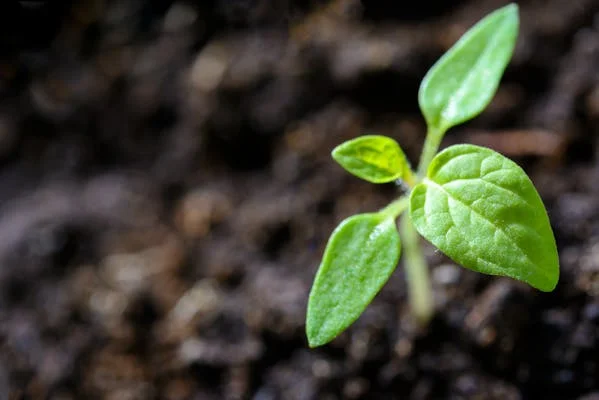In today’s fast-paced urban world, the need for sustainable practices and a closer connection to nature has led to concepts like Hurbarna. This innovative approach combines “urban” with “herbs,” focusing on cultivating plants within cities. The movement has evolved beyond gardening, pushing boundaries to create healthier, greener, and more engaged urban environments.
What is Hurbarna?
Hurbarna is a growing trend in urban gardening, where the cultivation of herbs is a key focus. It’s not just about growing plants. It’s about cultivating a lifestyle that enhances personal well-being and the environment. The concept of Hurbarna has been gaining popularity thanks to its ability to improve health, sustainability, and community relationships in densely populated areas. The Hurbarna movement encourages city dwellers to cultivate herbs such as basil, rosemary, and thyme in their homes or shared spaces. This promotes health benefits, environmental consciousness, and social interaction. It turns urban spaces into green sanctuaries, fostering an appreciation for nature amidst the concrete jungle.
The Benefits of Hurbarna
Health and Wellness
When integrated into your diet, herbs like mint, basil, and oregano offer numerous health benefits. Fresh herbs are packed with antioxidants and essential nutrients that can boost immunity, aid digestion, and even improve skin health. Additionally, cultivating these herbs in urban environments gives individuals the opportunity to enjoy organic produce without relying on heavily processed store-bought options.
Environmental Impact
Urban spaces are often associated with pollution, high temperatures, and limited greenery. Hurbarna offers a solution by integrating plant life into metropolitan areas, which can help reduce the urban heat island effect and improve air quality. Urban gardens, particularly those cultivated with herbs, beautify spaces and support local biodiversity, providing habitats for pollinators like bees and butterflies.
Community Building
At its core, Hurbarna is about more than gardening—it’s about building stronger communities. Urban gardening initiatives often involve shared spaces where neighbors come together, exchange tips, and build relationships. These community gardens can become hubs for knowledge-sharing and collaboration, fostering a sense of belonging and collective action.
How to Start Your Own Hurbarna Garden
Choosing the Right Herbs
To begin your Hurbarna journey, it’s essential to select herbs that suit your local climate and available space. Common herbs like basil, mint, and thyme are excellent choices due to their ease of cultivation and versatility. These herbs thrive in small pots or containers, making them ideal for urban settings.
Creating Your Urban Garden Space
Urban gardens don’t require vast spaces. Whether you have a balcony, rooftop, or small backyard, there are many ways to optimize your space. Vertical gardening, raised beds, and container gardening are excellent methods to maximize limited areas. Ensure your plants receive adequate sunlight and water, and consider incorporating sustainable practices like composting or rainwater harvesting.
Sustainable Practices
Sustainability is a core principle of Hurbarna. Eco-friendly gardening practices, such as organic pest control and composting, can help you create a thriving garden while minimizing your environmental footprint. These practices ensure that your urban garden remains healthy and productive without relying on harmful chemicals.
Popular Herbs for Urban Gardens
Here are some commonly grown herbs in Hurbarna gardens that are well-suited to urban environments:
- Basil: Known for its versatility in cooking, basil thrives in containers and small spaces.
- Mint: An easy-to-grow herb that can quickly spread, making it an excellent choice for urban gardens.
- Rosemary: This aromatic herb is useful in the kitchen and in medicinal practices. It thrives in pots and requires minimal care.
- Thyme is a hardy herb perfect for small spaces and low-maintenance gardens.
- Cilantro: A staple in many cuisines, cilantro is ideal for container gardening.
These herbs are practical and add beauty and aroma to any urban garden.
Hurbarna’s Role in Urban Sustainability
Environmental Benefits
By promoting the cultivation of herbs in urban spaces, Hurbarna plays a pivotal role in enhancing city sustainability. Urban herb gardens help reduce carbon footprints, conserve water, and minimize waste. For instance, growing your herbs can reduce the transportation emissions typically associated with purchasing herbs from supermarkets.
Long-Term Impact
The long-term benefits of Hurbarna extend beyond just greenery. By supporting local food production in urban areas, Hurbarna reduces dependence on mass-produced food, which often involves unsustainable farming practices. Additionally, by involving community members in gardening, Hurbarna fosters a sense of responsibility toward environmental conservation.
Conclusion
Hurbarna represents more than just a gardening trend—it’s a powerful movement that empowers individuals and communities to take control of their health and environment. Growing herbs in urban spaces can contribute to a healthier lifestyle, a more sustainable environment, and stronger communities. Whether you’re a seasoned gardener or a beginner, Hurbarna offers an accessible way to impact the world around you positively.
FAQs about Hurbarna
What is Hurbarna?
Hurbarna is an innovative urban gardening concept that combines herb cultivation within city environments. It focuses on growing plants like basil, thyme, and mint in small spaces such as balconies, rooftops, or community gardens, making them accessible to city dwellers. This movement promotes sustainability, health, and a closer connection to nature.
How can Hurbarna benefit urban environments?
Hurbarna offers several benefits to urban spaces, including:
- Improved air quality: Growing herbs in cities helps reduce pollution and purifies the air.
- Urban cooling: Plants absorb heat, reducing the urban heat island effect.
- Biodiversity: Urban gardens support pollinators like bees, improving local ecosystems.
What are the health benefits of Hurbarna?
Growing herbs in urban environments brings numerous health advantages:
- Fresh herbs are rich in antioxidants, vitamins, and minerals, improving immune function.
- Mental well-being: Tending to plants has been shown to reduce stress and promote relaxation.
- Fresh food: Access to homegrown herbs allows for healthier, organic cooking options.
What herbs are best for Hurbarna gardening?
Some of the best herbs for urban gardening include:
- Basil: A versatile herb perfect for small pots or containers.
- Mint: Proliferates and is ideal for containers or hanging baskets.
- Thyme: Requires minimal care and thrives in compact spaces.
- Rosemary: A hardy herb that adds flavor to cooking and is easy to grow in pots.
These herbs are helpful and add beauty and fragrance to any urban space.
How do I start my own Hurbarna garden?
Starting a Hurbarna garden is simple:
- Choose the right herbs: Select herbs suited to your local climate and space.
- Prepare your space: Whether it’s a balcony, rooftop, or small backyard, make sure it gets enough sunlight.
- Use sustainable practices: Consider composting, rainwater harvesting, and using organic fertilizers to keep your garden eco-friendly.
- Maintain regularly: Water your plants consistently, remove weeds, and harvest your herbs when ready.
Can Hurbarna help with sustainability?
Yes, Hurbarna plays a significant role in sustainability:
- Local food production: By growing your herbs, you reduce the need for transportation, reducing carbon emissions.
- Waste reduction: Herbs grown locally don’t require plastic packaging, helping to reduce plastic waste.
- Eco-friendly gardening: Hurbarna encourages sustainable gardening practices like organic pest control and composting.
Is Hurbarna easy to maintain?
Yes, Hurbarna gardens are relatively easy to maintain. Most herbs require minimal care, especially if you choose low-maintenance varieties like thyme, basil, or mint. Regular watering, ensuring proper sunlight, and occasional pruning are usually enough to keep your garden thriving.
Can Hurbarna be implemented in any city?
Hurbarna can be implemented in virtually any urban area with access to small spaces like balconies, rooftops, or shared garden areas. Even in highly populated cities with limited green space, Hurbarna can thrive using vertical or container gardening methods.







